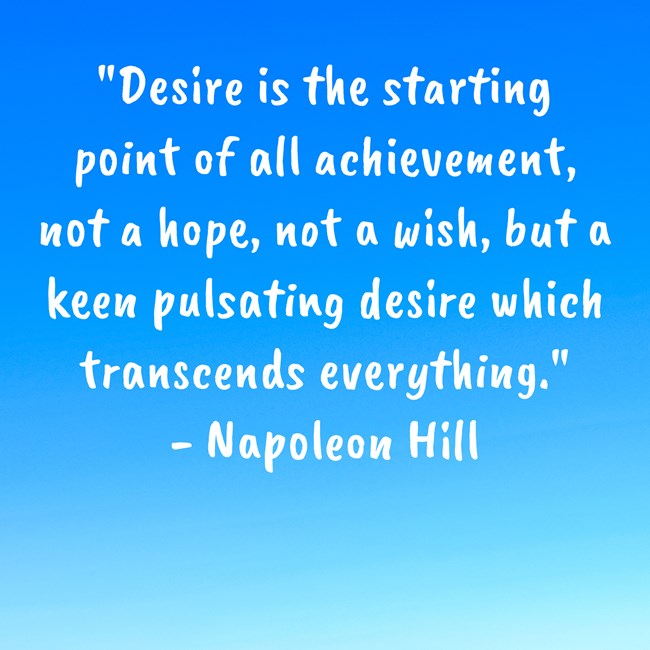Introduction:
Desires, intrinsic to the human experience, constitute a dynamic force that propels individuals forward on the path of personal growth and achievement. Often misconstrued with negativity, desires deserve a nuanced exploration that considers their diverse nature. This essay delves into the multifaceted role of desires, emphasizing the potential for positive transformation when desires align with one’s values and are approached with mindfulness.
1. The Nature of Desires:
Desires, deeply embedded in human psychology, are a complex interplay of biological, psychological, and societal factors. From the basic necessities of survival to the loftiest aspirations, desires manifest in various forms, driving individuals to seek fulfillment and purpose. Recognizing the diversity and innate nature of desires lays the foundation for a comprehensive understanding of their role in shaping our lives.
2. The Power of Healthy Desires:
Healthy desires, those that harmonize with an individual’s values and contribute positively to their well-being, act as formidable catalysts. They infuse life with purpose and passion, providing the necessary energy and motivation to pursue and attain meaningful goals. When desires align with one’s authentic self, the journey toward personal growth becomes not just a quest for accomplishment but a profound exploration of identity and purpose.
3. The Pitfalls of Unchecked Desires:
However, the narrative of desires is not without its caveats. Not all desires are constructive, and pursuing them without thoughtful consideration can lead to detrimental consequences. Unhealthy desires, often stemming from external pressures or societal expectations, may result in stress, dissatisfaction, and even harm to oneself and others. Awareness of the potential pitfalls is crucial in navigating the fine line between aspiration and excess.
4. The Importance of Self-Awareness:
In navigating the complex landscape of desires, self-awareness emerges as a guiding beacon. It enables individuals to discern between healthy and harmful desires, fostering a deep understanding of personal values. Through mindful reflection, one can align desires with their authentic self, ensuring that the pursuit of goals remains a true reflection of individual aspirations rather than external influences.
5. Balancing Desires and Responsibilities:
Achieving a harmonious coexistence between personal desires and societal responsibilities is an art form. Striking this balance is pivotal for a purposeful life. Responsible decision-making involves considering the broader implications of desires, not just on an individual level but in the context of familial, societal, and environmental impacts. The ability to navigate this delicate equilibrium is an essential skill in the pursuit of a well-rounded and meaningful existence.
Conclusion:
In conclusion, desires, when approached with mindfulness and aligned with one’s values, have the transformative power to steer individuals toward personal growth. Acknowledging the nuanced nature of desires, understanding the potential pitfalls, and fostering self-awareness create a foundation for responsible desire fulfillment. Embracing desires as positive forces, individuals can embark on a journey that not only fulfills personal aspirations but also contributes meaningfully to the world around them, fostering a more fulfilling and purposeful life.
Recommend books:
“Drive: The Surprising Truth About What Motivates Us” by Daniel H. Pink:
Pink explores the science of motivation and what truly drives us. The book delves into the concept of intrinsic motivation and how it relates to our desires and goals.
“The Art of Happiness” by Dalai Lama XIV and Howard Cutler:
This book combines the insights of the Dalai Lama with the perspectives of a Western psychiatrist. It explores the pursuit of happiness and how desires, when approached mindfully, can contribute to a more fulfilled life.
“Desire: Why We Want What We Want” by William B. Irvine:
Irvine, a philosopher, takes a deep dive into the philosophy of desire. He examines why we desire certain things and how these desires shape our lives.
“The Desire Map: A Guide to Creating Goals with Soul” by Danielle LaPorte:
LaPorte encourages readers to explore their desires in a meaningful way by connecting them to their core desired feelings. The book offers a unique perspective on goal-setting and personal fulfillment.
“The Art of Desire: A Philosophy of Erotic Love” by Pedro Blas González:
This philosophical exploration delves into the nature of desire, particularly in the context of erotic love. It offers a thought-provoking perspective on the complexities of human desire.
“Mindset: The New Psychology of Success” by Carol S. Dweck:
While not directly about desires, Dweck’s work explores the concept of mindset and how our beliefs about our abilities can impact our desires and goals. It provides valuable insights into cultivating a growth mindset.
“The Bhagavad Gita” translated by Eknath Easwaran:
This ancient Indian text is a spiritual classic that explores the nature of desire and the paths to spiritual fulfillment. It provides philosophical insights into the balance between desires and a higher purpose.
“The Power of Now: A Guide to Spiritual Enlightenment” by Eckhart Tolle:
Tolle’s book focuses on living in the present moment and transcending the ego, shedding light on how desires often tie us to past and future concerns. It offers a transformative perspective on desire and fulfillment.

